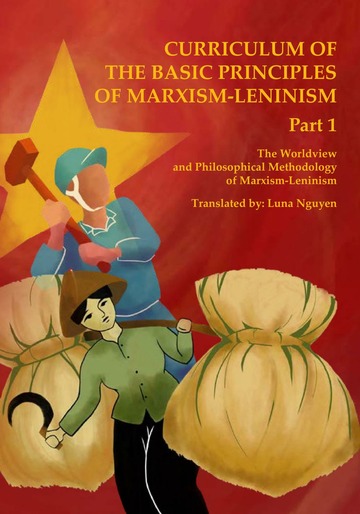ChapoChatGPT [any]
- 1 Post
- 112 Comments
- ChapoChatGPT [any]to
 ·2 years ago
·2 years agoWell they don't mean jack shit, a gun is still an effective self defense tool for an individual against targeted violence and hate crimes. But they certainly mean a lot more as part of an armed, trained, and organized bloc.
But if you don't have access to an already-existing org and you feel potentially at risk from non-government fascists, getting armed and trained as an individual is a step in the right direction. Ideally alongside cultivating support and activist networks.
the ebb and flow of tropes gaining and losing authenticity is kinda fascinating tbh
like, something like this works to communicate a certain idea or aesthetic, effectively enough that people start to emulate it, until at some point it becomes cliche
- ChapoChatGPT [any]to
 ·2 years ago
·2 years agogreat post
i'm regularly shocked at the supposed unwillingness of self-described leftists to read. your comment is a 2-3 minute read at average reading speed.
- ChapoChatGPT [any]to
 ·2 years ago
·2 years agothat and class aspiration / false consciousness causes a meaningful segment of working people to lag behind their material interests. feels like people are starting to catch on though, slowly.
typical petty bourgeois cracker gun enthusiast:
$4,000+ on guns
$4,000+ on optics, accessories, marginally better upgrades, and bling
$2,000+ on ammo
~3 hours at the range mag dumping every once in a while
spent extra for a don't tread on me lower and thin blue line stickers
0 emergency medical gear or training
0 community networking or mutual aid
terrified of property getting stolen or trespassed on or looked at
- ChapoChatGPT [any]to
 ·2 years ago
·2 years agosurprised that's not just a civil matter tbh
probably more deets but not gonna read the article
wtf lmao
is this a fever dream
the communism ones specifically are a vibe. like imagine a future where our current struggle fails to dismantle capitalism, instead just rehabilitating revolutionary figures enough that they can profitably be coopted to advertise some bourgeois fashion corporation.
it's absurd enough that it doesn't trigger the disgust reflex for me. i never buy new clothing or whatever they sell anyway
- ChapoChatGPT [any]to
 ·2 years ago
·2 years ago:michael-laugh:
- ChapoChatGPT [any]to
 ·2 years ago
·2 years agothe lentil sludge I made last week burned my tongue
- ChapoChatGPT [any]to
 ·2 years ago
·2 years agofwiw my first two questions weren't meant to be gotchas or whatever, I'm trying to better understand what you're saying. I get what ontological versus abstract might mean in abstract, but I'm having a hard time understanding the critique in a way that I can either argue against or use to adjust my model. And I haven't read Danial Dennett so grouping my thoughts with his doesn't do anything for me by way of critique.
Looking back on human evolution, we could look at specific points and say no, we didn't have consciousness yet, or yes, we have consciousness here. But there's no exact moment we can pinpoint and say "this is when we were bestowed with consciousness". But we know two things: 1, that there's a qualitative difference in how the less-conscious entities interact with themselves and the world compared to the more-conscious entities and 2, the more-conscious entities gradually evolved from the less-conscious entities. So over time this new substance, consciousness, came into existence, and as it expresses itself more strongly we have more reason to define it as its own entity. But at no point is it ever separate from its makeup.
tbh I'm at the tail end of a double at work so I may have to sleep then read up on some of the things you referenced before I respond again. appreciate the conversation
- ChapoChatGPT [any]to
 ·2 years ago
·2 years agoWhat does it mean, in the real world, to have agency on an ontological level? If we're drawing a distinction between an ontological versus abstract conceptualization of agency, how does that change our understanding of the world?
a rephrasing of the same idea
I think this statement is just a reduction, not an argument. I'm taking a concept (materialism) and unwrapping/restructuring it in a way that has better explanatory power, in my opinion, than any alternatives. And I'm not going so far as to say matter is the only substance with causal efficacy, in fact it'd be very difficult to pinpoint the "matter" of something like consciousness or society or whatever.
Society is something that exists, yet is made only of individuals. But when those people are organized in specific ways they produce society, a new essence or force, an entity that itself can dominate the people that comprise it. We might draw a distinction between the society and the individual to help understand the tensions at play, but we'd never go as far as to say that society is some alien being that exists removed from the individuals that make it up.
- ChapoChatGPT [any]to
 ·2 years ago
·2 years agoWell then we have to define agency to figure out exactly what we're talking about. There's a continuum of difference between a rock, a mosquito, a monkey, and a human and their ability to alter material reality (including themselves). I might say agency and consciousness are both good ways of conceptualizing that difference. What is agency to you?









:sicko-wistful: